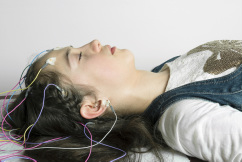
Epilepsy is the third most common neurological disorder in the world, with an estimated 60 million people having epilepsy at any one time. The impact of seizures on one's social, emotional and physical well-being is tremendous. Fortunately, the majority of people with epilepsy are able to lead normal and productive lives.
The Epilepsy Center at CTNC is led by Terry S. Peery, DO and offers Central Texas comprehensive epilepsy care, with state-of-the-art diagnostic tools such as EEG, ambulatory EEG and video-EEG monitoring for the characterization and localization of one's seizures; and the most up-to-date treatments including vagal nerve stimulator and clinical trials for novel therapeutics. TreatmentsMedications:
Anti-seizure medications are the first-line treatment for epilepsy, and may be prescribed to relieve your seizures or reduce their frequency. If 3-5 medications have been prescribed and do not work to control your seizures, we will likely recommend evaluation for surgery as the next step. VNS (vagus nerve stimulation): A pacemaker-like device that is implanted in the chest wall with a wire that connects to your left vagus nerve in your neck. The device delivers weak electrical impulses that prevent seizures. Learn more about VNS Surgery: The most common surgical procedures include:
Tests
EEG (electroencephalography):
Routine EEG, or electroencephalography, records brain waves using electrodes placed at defined locations on the scalp using conductive paste or glue. You will lie still on a bed and may be asked to perform some simple tasks. Flashing lights and hyperventilation may be used during the test to provide additional information. In most cases, the brain waves during both waking and sleep are recorded. The test typically takes one to two hours. VIDEO EEG: Records actual events or seizures, which can assist with diagnosis and surgical evaluation. As with routine EEG, electrodes are glued onto the scalp, although more electrodes are typically used. During the test, antiepileptic medications are often reduced or stopped to improve the chances of recording seizures. A typical recording lasts three to five days, although it may be shorter or longer depending on how long it takes to obtain the necessary data. |
Epilepsy Facts
To learn more about seizures and epilepsy please visit www.epilepsy.com Patient FormsIf you have an appointment or plan to make an appointment in our Epilepsy Center, please download and complete the following forms
To view the forms listed above, you may need Adobe Reader. You can download Adobe Reader for free at www.adobe.com.
Epilepsy Resources
Terry S. Peery, DO is Board Certified in Neurology and Sleep Medicine, and is the Medical Director for EEG services at St. David's Round Rock Medical Center. He completed a Fellowship in Epilepsy and Neurophysiology at Duke University.
More... |
|
Central Texas Neurology Consultants, PA ©2023
|
|
